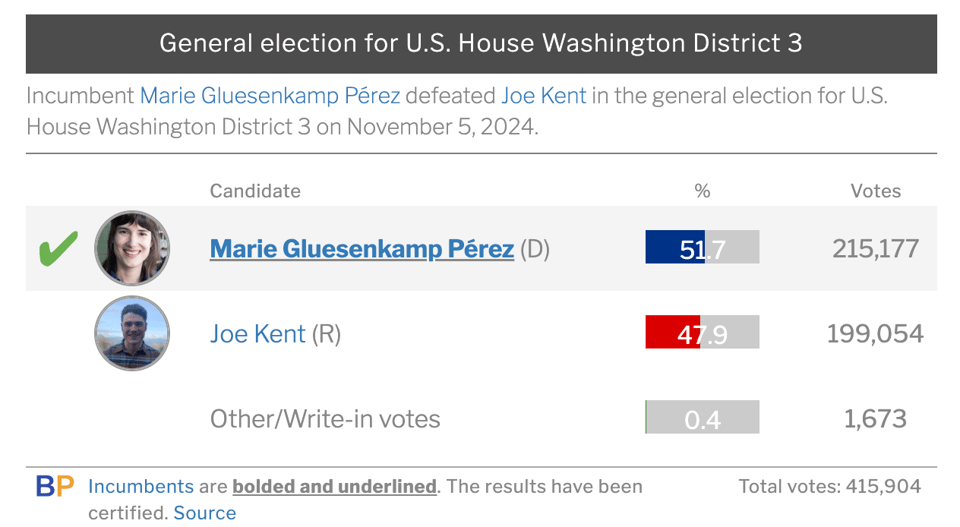Oligarchs, Empathy, and Truth – A Reader Mailbag

Greetings from an undisclosed location in Doha, Qatar, where I’m chaperoning a group of kids at an interscholastic academic competition.
It’s been a fortnight since the last newsletter and much has transpired in the world in the interim. The federal government is shutdown and masked goons continue their raids in US cities unabated. Similarly the abdication of authority by the legislative branch and acquiescence of the federal courts continue to roll on, all with terrible results.
This week I plan to dedicate the newsletter to your responses to the series on oligarchy and wealth consolidation and its ruinous impact on the country. I am wrapping the series here although various takes on the problem could be our topic for the next twenty newsletters.
But before we go there some admin: I believe the two most recent episodes of the podcast are likely pertinent to this audience:
First, I spoke with the US Representative from Washington’s Sixth District, Marilyn Strickland. She came on to discuss the underlying causes of the government shutdown. She reiterated that the GOP currently controls both Houses of Congress and the White House, and is attempting to pass a budget that will slash federal spending on health care, causing rates on the ACA exchanges to soar.
The scale of these price jumps is best demonstrated in the image below from Senator Raphael Warnock of Georgia.

As Strickland noted in our discussion, similar notices are rolling out across the State of Washington this week. If the GOP budget is passed 15 million people nationwide are expected to lose access to healthcare.
These cuts to ACA subsidies come on top of the massive Medicaid cuts passed earlier this year.
Imma keep it buck with you: this a wealth transfer. They are slashing federal support for low-income and disabled people through Medicaid, and they're hitting self-employed people, contractors, and small business employees who rely on the ACA exchanges, all to fund grotesque tax breaks for the wealthiest Americans. For people at the top of the income spectrum, these tax cuts are worth the equivalent of a starter home in most major markets.
Secondly, if you are a voter in my beloved Tacoma, we recorded an Audio Voters’ Guide for Tuesday’s election covering the mayor, city council, parks board, and port races. A second conversation covering the races for the county charter commission is available on the Crossing Division feed.
Now onto our mailbag.
First up, N.B. He is one of the earliest subscribers to the newsletter and resides in New England. He lamented the abandonment of the populist economic message of the New Deal and the retreat from the idea that the government can fix problems and make people’s lives better. Regarding billionaires he noted their wealth isolates them, decaying their sense of empathy over time:
An interesting study last year showed that CEOs and such lose their empathy because no yes-man says, "Well, maybe not. Let's talk about it." An interesting addition was that the researchers asked if some of the CEOs would like to regain their empathy. Some said yes, so were given a bunch of things that had proven helpful in regenerating empathy—but it didn't work. They couldn't be brought back to that natural aspect of human nature, compassion for others.
Reader S.B., picked up the thread about the abandonment of “government as problem solver” and how it undermined confidence in liberals and liberalism. She connected the failed strategy of triangulation by centrist Democrats, most famously Bill Clinton, where they adopted right wing narratives about “broken government” and offered market based neoliberal solutions. We saw this same strategy unfold regarding public education during the Obama Administration and their “Race to the Top” initiative:
Much like public education, the left criticized government, made deals with the right (see: welfare reform) that bought into narratives about how government was broken and that its best days (I’m thinking NASA here) were behind us and that innovation only came from the private sector. Shocker that’s led to a public that doesn’t see the need to defend government; we literally handed it over to the billionaires.
This tried & failed approach not only ceded moral and rhetorical ground to conservatives but also demoralized and demobilized the progressive base and eroded support for public institutions.
S.R. from Tacoma highlighted a politician that seems to understand all this but comes with her own baggage that I will unpack below:
This newsletter, particularly point one, made me think of Washington's 3rd congressional district representative, Marie Gluesenkamp Perez. MGP (as I've heard her called on the Sound Politics podcast) is making working class politics the point of her tenure. While I don't agree with her on everything (some things I find problematic), I've found a lot of what she's expressed in interviews very compelling. Particularly, her interview with Ezra Klein, and also her interview on the Blue City Blues podcast. It struck me that one of your recent podcast guests, Dave Clark, used the word "localism" to describe how residents of a community can help each other, which is the same word that Klein used to describe MGP's politics. Am I getting snowed? What's your take on MGP, what do her positions mean on both a national and local level?
If you haven’t listened to that conversation with Gluesenkamp Perez, you should. It’s illuminating. The closest analog for her in national politics is Joe Manchin.

She represents a largely rural district in the SW corner of the state. She is one of only thirteen Democratic members of the US House that represents a district carried by the President in 2024. Her policy platform doesn’t line up with mine but I wouldn’t be able to win an election in Washington’s notably swing-y third district. I can criticize numerous votes she’s cast but she’s an effective economic populist and the kind of politician Democrats need more of if they want to win and hold majorities in Congress.
The final edition of the Billionaire Are the Problem series was about media. Shortly after I hit publish a reader sent something to me from Robert Reich. He’s a former Labor Secretary for the Clinton Administration and his observation explains the core issue I was getting at in that edition of the newsletter:
The richest man on earth owns X.
The second richest man on earth is about to acquire TikTok and his family could soon own both Paramount and Warner Bros.
The third richest man owns Facebook, Instagram, and WhatsApp.
The fourth richest man owns The Washington Post.
See the problem here?
Billionaire oligarchs are now the titans of US media, using their market dominance to set the terms of discourse and realm of possibility in the information environment.
Truth is rapidly becoming a private property, controlled by elites.
When so few people control so much of the information ecosystem, democracy itself becomes fragile. The stories we tell, the truths we elevate, and even the boundaries of acceptable debate are shaped by people whose interests are aligned with maintaining the status quo. We’re living through a second Gilded Age, only this time the monopolies are not just over steel or railroads—they’re over attention, speech, and reality itself.
See you next week.